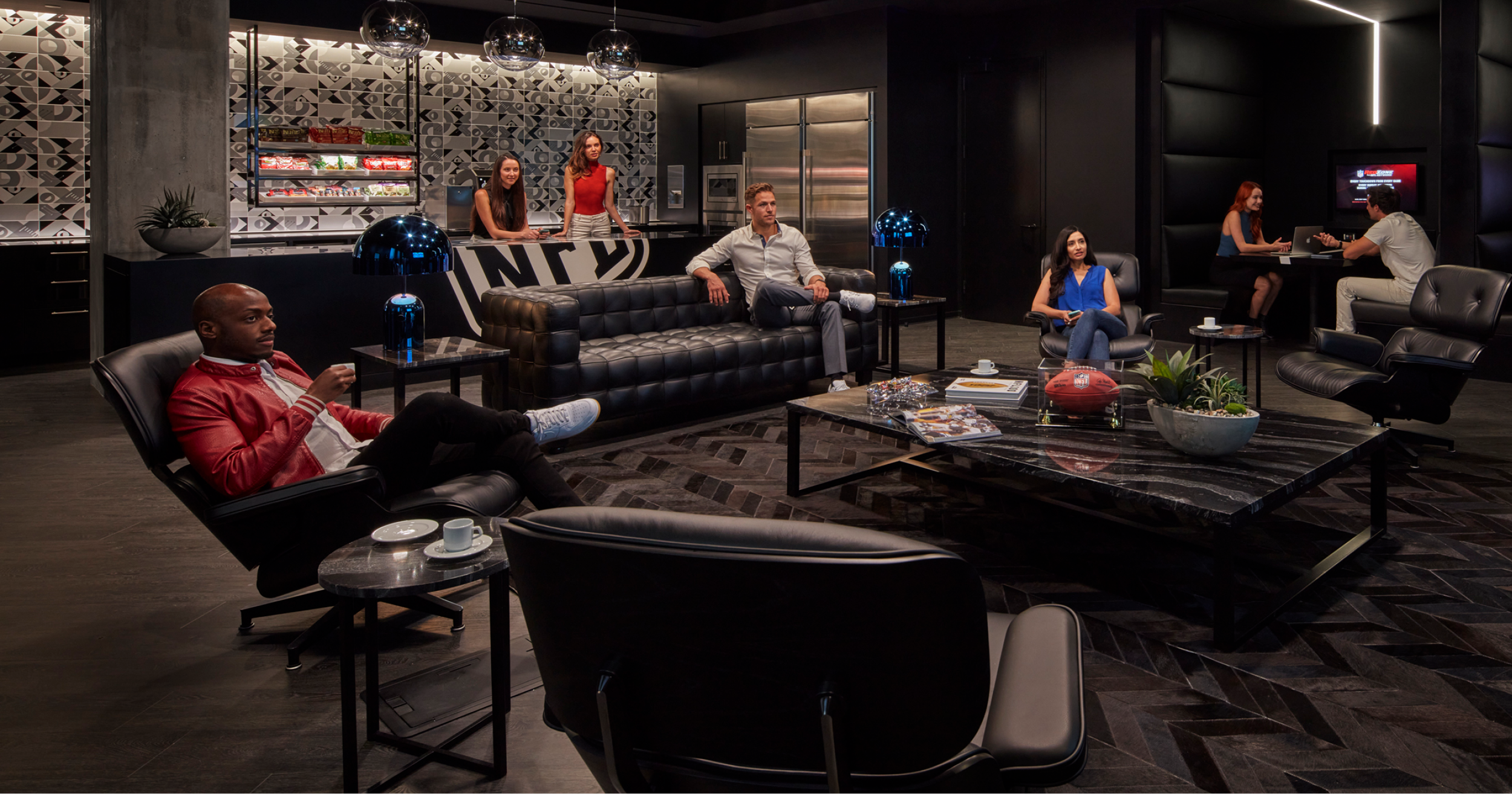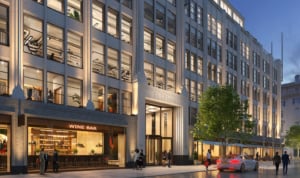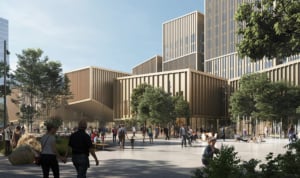REBusinessOnline: We’re All in the Hospitality Business Now

Sourced from REBusinessOnline
August 16, 2023
by Rob Olivet, Senior Director, MGAC
One of the biggest challenges that commercial owners and operators face regardless of market or property type is creating places where people want to be, both from an employer and user perspective.
From multifamily and offices to schools and hospitals, the reality of built space today is that people are managing more of their professional and personal obligations remotely. As a result, owners, developers and managers across industries are looking to the hospitality industry for cues on how to be more intentionally user-focused and create reasons for people to want to occupy their spaces.
When it comes to leisure spaces, the key is to deliver unique experiences that are hard to find elsewhere. The sector that has excelled at this more than any other is, unsurprisingly, hospitality. After all, hotels are specifically designed to cater to their guests. They are service-oriented, feature many amenities and focus on creating a sense of wellness, fun and relaxation.
Developers that focus on student housing, higher education, office and even healthcare projects are making conscious efforts to construct spaces that are less institutional and more hospitable. For office and healthcare settings in particular—those in which people may be least eager to spend time—there is a focus on removing frictions and streamlining environments to make visits easier and more pleasant.
Residential
In residential buildings, owners are increasingly touting hospitality-like amenities, going beyond the ordinary to offer private clubrooms, areas for socializing, and, especially in high-end properties, concierge services. This can be done either through co-branding partnerships or in-house hospitality brands. All of this activity requires hospitality-inspired infrastructure to deliver this level of functionality and operational seamlessness.
Multifamily properties ubiquitously offer enhanced infrastructure to differentiate themselves from the market—movie theatres, outdoor lounges, landscaped walking spaces, spas, pools, gyms and restaurants—all for residents to get the “hotel” feel while living at home. Because successful hotels seek to provide guests with a design experience that is unobtainable or unreasonable at home, residential buildings are now adopting higher-end designs and architecture—often co-branded with leading hotels or designers—to distinguish themselves from the competition and offer residents a getaway every time they come “home.”
Workplace
As offices struggle to maintain occupancy rates due to hybrid work policies, efforts are shifting more toward a focus on hospitality to make the office a place people want to be, or at least a place where work and collaboration is more effective and enjoyable than from home.
Workplace settings need to offer something that can’t be found in a home office or remote space. To accomplish this, office owners are engaged in more extensive placemaking initiatives, aiming to give employees a better sense of community, easy access to great spots for work lunches and business development networking opportunities and areas to collaborate with coworkers away from desks. They’re also incorporating cutting-edge technology and building automation systems to promote and facilitate better focus and eliminate unwanted distractions.
Student Housing
Student housing and university campuses are no strangers to the world of hospitality, especially amid fiercer competition for applicants and attendees. As cultural conversations increasingly question the value of a college campus experience, more emphasis and effort is being put on designing spaces that enhance the experiences of students and that cannot be achieved remotely.
There is also a much higher emphasis on amenities that position students less as a captive audience and more as consumers with choices. From more pleasant dormitory designs and finishes to more convenient areas for socializing and collaboration, there’s a “stylish budget hotel” feel to many new student dorms.
There’s also a huge need for more spaces like this, as a not-insignificant number of institutions have started housing undergrads in converted hotels near campus due to accommodation shortages. After staying at the Hilton or Marriott, it’s tough to think about going back to traditional cinderblock walls.
Healthcare
The healthcare sector has a different value proposition since it represents an asset class in which people have to spend time in rather than want to. Still, people have a choice in where they receive care, and hospitals are investing in automated technology. From touchless entry and wireless access points to digital check-ins and more discrete spaces, including corridors and designs that reduce interactions with, and even the ability to see other patients, healthcare operators are striving to create more private and patient-centered experiences.
This intersection of healthcare and hospitality makes sense, since both business models are predicated on heads in beds, albeit for far different reasons. However, both are also alike in how they treat the guest journey, from valet services and checking in to the provision of service and checking out.
In short, both are about the personal touch that users receive. In hospitals, design is increasingly focusing on providing that personal touch through technology and much greater privacy—as well as the removal of frictions that can arise during the experience for patients and their loved ones.
Hospitality Expertise
The central driving force of all efforts to make spaces more hospitality-focused is a strong need to adapt to changing consumer expectations. As consumers put a greater emphasis on experiences and technology, owners and occupiers need to be more proactive and intentional, from a built environment perspective to meet those expectations.
Because of the crucial role of the built environment in facilitating this, it is increasingly important for developers, owners and other construction project leaders to involve experts with that kind of experience throughout the project lifecycle, from design through to construction and the transition to operations and asset management.








